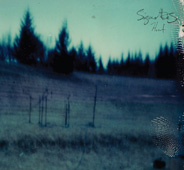Cultivars of Grace
It is my vacation. The girls and I returned to visit my in-laws in a hiccup-sized town in the Florida panhandle scrub country. The scarlet waves of clover billow in the wind (I avoid the words "crimson tide"), and the jonquils give rise to the suggestion that Spring would soon dance out of the wings and onto center stage, moving even the brittle live oaks to a greening. Ah, the oaks - our alter egos according to Isaiah, and always the last to sprout leaves.
Going down for a visit is always a ritual of mixed emotions. On the one hand, I am lovingly haunted by the stark, lonely beauty of those wide, forgotten flatlands. They are the face of Moses, of Elijah, of Christ walking out of the wilderness to speak to the people after a harrowing unmasking of the self before God. On the other hand, the town is awash with my wife's memories, cracked and rusted in the marches of time. There is always the mixed wine of tidings good and ill. Small town life seems to either drift away, leaving a nostalgic shadow in its wake, or it stays near and becomes ingrown. It is very good, but emotionally taxing.
Taking shelter from a midday rainshower, I ducked into the old potting shed on the property, a ramshackle affair being continuously given the nudges of resurrection by my father-in-law Richard. It being mid-March, Karen, my mother-in-law, was in the midst of coaxing audacity out of a few timid tomato plants and Brussels sprouts beneath grow lights. The rest of the shed was taken up with mud-stained gardening implements and dusty bric-a-brac. A small selection of gardening volumes and cookbooks lined a shelf, and the prehistoric hulk of a tiller squatted against a wall. Stacks of upside down flower pots filled in the gaps between spades and hoes and watering cans. It was all dead tools, or at least only potential energy. The only life present was the fuschia feathering of miniscule tomato leaves under womb-colored light, and I couldn't help but think of my upbringing in the church.
So many of us, in the States especially, were brought up surrounded by the riches of Scripture and the admonitions of humble and human saints. We were immersed in the silly but wonderful and purposeful vagaries of our respective traditions, enfolded in great clouds of witnesses, the channels and vessels of grace. Yet in the midst of it all, life seemed strangely absent, or at least hard to come by. Given all the books and tools, one would expect life to be overflowing, but it was merely a secret, waiting pregnant in a dark corner like a dormant seed. Somehow or other, God shook us loose into life, pruning and urging, feeding and covering before frosts. It is no wonder, then, that many of us don't easily recognize the Spirit in saints who sprouted like wild mustard on the fringes of some wasteland, their joyous golden sprays of blossoms unseemly and unhinged in their grace. They are the AA Christians, the profligates-turned-preachers, the outlandish stories of failed suicides becoming visions of Christ and the saints. They are the Twain to our Fenimore Cooper, God's wry grin over the ornate and ludicrous prose of our theology.
Surely they must often grow frustrated with us. They leap toward the light with all their strength, all their soul, all their might, often failing in spectacular fashion without the bourgeois skills of hiding it. We require gentle prodding and rich soil to grow, while they latch onto any near scent of the Gospel and explode with praise. My view of them is the poet's view, not the theologians. Of course it falls blithely short of an understanding of Christ's parable of the soils (the theologians' views fall short too, one might argue), but truly I sometimes long to be like one of these, wild and unbounded in love, passionate and expressive. My comfort is in the knowledge that the author of life is the author of both the wolf and the dachshund, the mustang and the cart pony. Both wild and tame shall be in his fold, but even on our best days, none among us approaches either the inward cultivated richness or the wild outbound leaping of the love of God.











